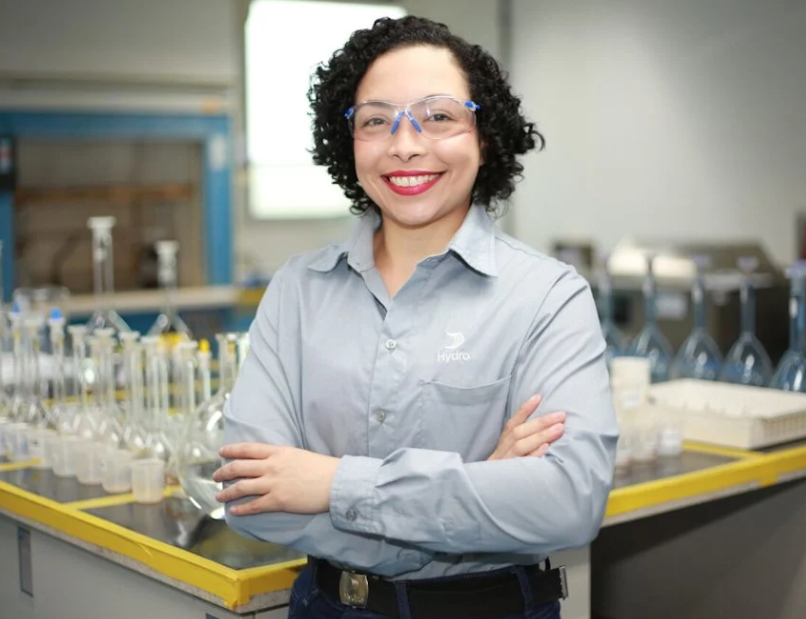

In a significant move, Hydro's bauxite & alumina business area has partnered with the Heavy Industry Low-carbon Transition Cooperative Research Centre (HILT CRC). This collaboration aims to harness cutting-edge research expertise and innovative technologies, particularly focusing on reducing emissions within Hydro's alumina production operations in Brazil. The alliance mirrors Hydro's steadfast pledge to reach net-zero emissions by 2050, emphasising its unwavering dedication to sustainability and pioneering solutions.

The HILT CRC is a collaborative initiative uniting industry, research, and governmental organisations. Its core mission is to develop and mitigate risks associated with technological solutions for reducing emissions across critical sectors such as iron and steel, alumina, and cement industries. The overarching goal of the HILT CRC is to attain a net-zero emissions status by the year 2050. The CRC has a robust consortium of 53 partners, including over 30 industry collaborators.
Expected outcome of the new collaboration
Moreover, the refinery's use of fuel oil will be supplanted by natural gas (LNG). With a BRL 1.3 billion investment, the project is anticipated to yield an annual reduction of 700,000 tonnes of carbon. The objective is to achieve complete replacement by 2024, which will immediately decrease over 1.1 million tonnes of CO2.
Additionally, Hydro Alunorte has entered into two Power Purchase Agreements (PPAs) to procure solar energy from two Hydro Rein projects. One of these projects is Mendubim, a 531-megawatt (MW) solar initiative conducted in collaboration with two other renewable energy firms, Scatec and Equinor ASA. A 20-year PPA denominated in U.S. dollars has been inked with Alunorte, which will consume roughly 60 per cent of the generated energy.
The second project, Ventos de São Zacarias, combines wind and solar energy with a total capacity of 456 MW in northeastern Brazil. Situated in Piauí and Pernambuco, it will be developed within one of Latin America's most significant wind farm clusters. With the signing of these two contracts, Hydro Alunorte is poised to further invest in deploying electric boilers within its operations.
What they have to say
"Hydro takes another important step towards achieving the goal of decarbonising operations by 2050. Innovation is at the heart of our sustainability strategy, and we believe that investing in research and new technologies is the best way to achieve the transition to green aluminium. Collaboration is a key element, and we are establishing another partnership with an important research institution. We believe that science plays an essential role in the pursuit of advanced technologies and sustainable initiatives," said Raphael Costa, Director of Technology in Hydro Bauxite & Alumina.
"Hydro's ambition of offering zero-carbon aluminium, circular solutions and more renewable energy, and their technology roadmap to reach net-zero emissions by 2050, shows strong alignment with HILT CRC's mission and strategy. We welcome Hydro to HILT, and look forward to collaborating on new technology developments and solutions to help the aluminium industry fully decarbonise," added HILT's CEO, Jenny Selway.
Hydro's plan to achieve decarbonisation
The operations in Brazil hold a pivotal role in Hydro's pursuit of its decarbonisation objectives. One crucial aspect is the transition in the energy mix at the Alunorte alumina refinery in Brazil. It is a cornerstone for Hydro's climate strategy and its global commitment to slash greenhouse gas emissions by 30 per cent by 2030.
Hydro is actively executing comprehensive initiatives aimed at completely phasing out coal usage at Alunorte by 2030. The company is exploring alternative energy sources for its operations to achieve this. These include green hydrogen and the utilisation of biomass derived from açaí stones, a byproduct of the large-scale production of açaí pulp in Pará.
In 2022, Alunorte took a significant step by installing the world's largest electric boiler. This marks the first of five electric boilers slated for implementation in the refinery over the upcoming years. Once all are operational, this project is poised to reduce over 400,000 tonnes of carbon emissions annually.
Responses








